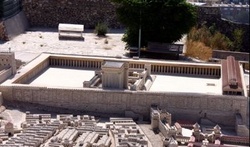Now is the time for Paul to reveal even more, so he is brought before the Sanhedrin, before him Paul asserts his integrity and innocence, only to realize he then said something contrary to the Torah:
22:30 The next day, because the commanding officer wanted to know the true reason Paul was being accused by the Jews, he released him and ordered the chief priests and the whole council to assemble. He then brought Paul down and had him stand before them.23:1 Paul looked directly at the council and said, “Brothers, I have lived my life with a clear conscience before God to this day.” 23:2 At that the high priest Ananias ordered those standing near Paul to strike him on the mouth. 23:3 Then Paul said to him, “God is going to strike you, you whitewashed wall! Do you sit there judging me according to the law, and in violation of the law you order me to be struck?” 23:4 Those standing near him said, “Do you dare insult God’s high priest?” 23:5 Paul replied, “I did not realize, brothers, that he was the high priest, for it is written, ‘You must not speak evil about a ruler of your people.'”
23:6 Then when Paul noticed that part of them were Sadducees and the others Pharisees, he shouted out in the council, “Brothers, I am a Pharisee, a son of Pharisees. I am on trial concerning the hope of the resurrection of the dead!” 23:7 When he said this, an argument began between the Pharisees and the Sadducees, and the assembly was divided. 23:8 (For the Sadducees say there is no resurrection, or angel, or spirit, but the Pharisees acknowledge them all.) 23:9 There was a great commotion, and some experts in the law from the party of the Pharisees stood up and protested strongly, “We find nothing wrong with this man. What if a spirit or an angel has spoken to him?” 23:10 When the argument became so great the commanding officer feared that they would tear Paul to pieces, he ordered the detachment to go down, take him away from them by force, and bring him into the barracks.
23:11 The following night the Lord stood near Paul and said, “Have courage, for just as you have testified about me in Jerusalem, so you must also testify in Rome.”

